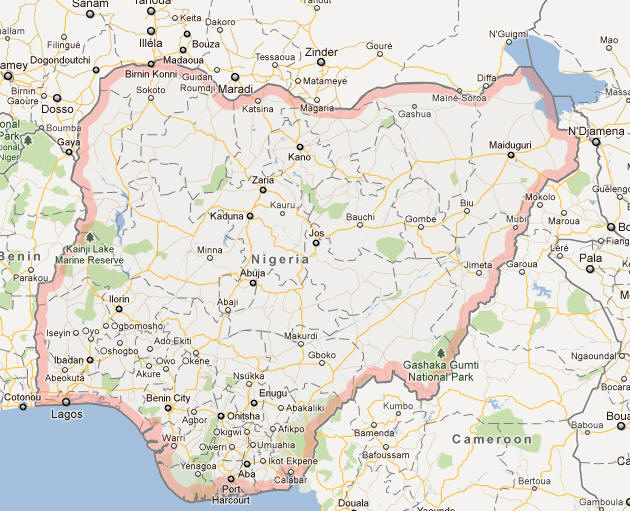Nigeria Facts
Nigeria, State of West Africa, Bay of Guinea; 924,000 km², 195.9 million residents (2019).Nigeria borders in the west to Benin, in the north to Niger, in the northeast to Chad and in the east and southeast to Cameroon and has the south coast to the Atlantic. The capital since 1991 is Abuja (1.4 million residents, 2010).

Country facts
- Federal Republic of Nigeria / Federal Republic of Nigeria
- Country abbreviation: NG
- Area: 924 000 km²
- Population (2019): 195.9 million residents
- Capital: Abuja
- Main languages: English, Hausa, Yoruba, Igbo
- State: Republic
- Head of State and Head of Government: Muhammadu Buhari (President)
- Per capita GDP (2018): USD 2,028
- GNI per capita (2018): US $ 1 960
- Currency unit: 1 naira = 100 kobo
- Currency code: NGN
- Country number (telephony): 234
- Internet Domain Name: ng
- Time difference compared to Sweden: 0
- National Day: October 1 (Independence Day, 1960)
Nature
- Land use: forest (10%), agricultural land (34%), other (56%)
- Highest mountain: Chappal Waddi (2,419 m above sea level)
- Longest river: Niger (4,160 km)
Population
- Population density (2019): 212 residents per km²
- Natural population growth (2019): 2.6%; birth number 38 ‰, death number 12 ‰
- Age structure (2019): 0-14 years (44%), 15-64 (53%), 65- (3%)
- Average life expectancy (2019): men 53 years, women 55 years
- Infant mortality (2019): 67 per 1,000 live births
- Population forecast 2050: 401 million residents
- HDI (2017): 0.532 (place 157 of 189)
- Urbanization rate (2019): 50%
- Most populous cities (2010): Lagos (10 million residents), Ibadan (5.2 million), Benin (2.4 million)
Business
- Industry’s contribution to GDP (2017): agriculture (21%), industry (22%), service (57%)
- Exports of goods (2017): US $ 1,146 million
- Main export products: oil, natural gas, cocoa
- Main exporting countries: India, USA, Spain
- Imports of goods (2017): US $ 32,670 million
- Main import products: machinery, chemicals, means of transport
- Main importing countries: China, Belgium, USA
- Railway network (2014): 3,800 km
Nigeria’s coastal plains with the large Niger Delta, like the Sokoto area in the northwest and the Chad Lake basin in the northeast, consist of wavy plains, which are often waterlogged. North of the coastal plains is a backland. In the north there are high plains and broad, shallow valleys, with numerous hills and inselbergs. At the border with Cameroon, the Adamaouama range extends into Nigeria. The country has a tropical climate with rainy season and dry season.
According to the constitution, the country is a federal state. The president is elected for four years in general elections and is head of state, commander-in-chief and head of government. The legislative Parliament consists of two chambers: the Senate and the House of Representatives. Parliamentary elections are held every four years.
The majority of Nigeria’s people work in agriculture. However, since the late 1950s, when oil extraction began, the oil industry has rapidly grown to be the driving force in the country’s economy. Oil now accounts for 95 percent of the country’s exports. The great dependence on an export product has made the country’s economy very vulnerable. The country also has a large informal sector, for example in the oil industry, which means that the state is losing big revenue.
Nigeria Map














































